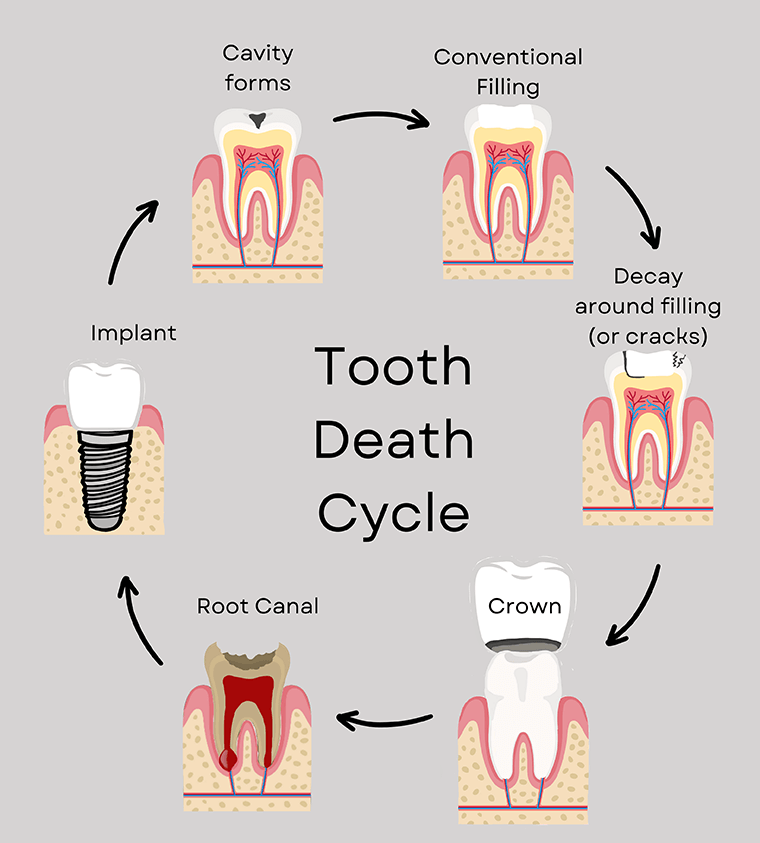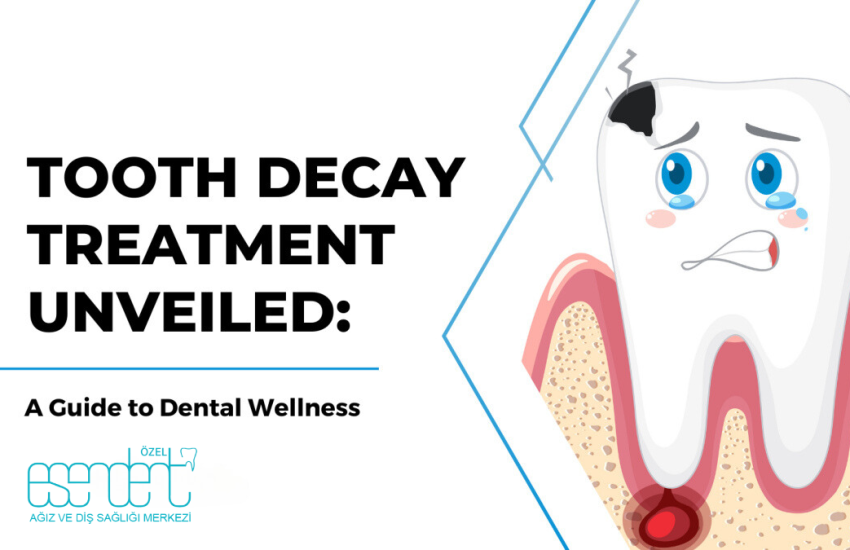Cavities, also known as dental caries or tooth decay, are one of the most common dental issues people face, yet they are also one of the most preventable. Understanding how cavities form and the steps you can take to prevent them is essential for maintaining a healthy smile. In this guide, we’ll walk you through the process of cavity formation and provide the most effective prevention tips to help keep your teeth strong and decay-free.
How Do Cavities Form?
Cavities form as a result of a combination of factors, primarily the presence of harmful bacteria, sugars, and acids. Here’s a breakdown of the process:
1. Plaque Formation
When you eat or drink, food particles, particularly sugars and starches, remain on your teeth. If these particles are not removed through regular brushing and flossing, they mix with bacteria in your mouth to form a sticky film called plaque. Plaque begins to build up on your teeth and gums, especially around the gumline and in the hard-to-reach areas.
2. Acid Production
The bacteria in plaque feed on the sugars in the food and beverages you consume, producing acids as a byproduct. These acids attack the enamel, which is the hard, outer layer of your teeth. Enamel is the first line of defense against decay, but it is vulnerable to acid attacks. Over time, the repeated exposure to acids weakens the enamel, causing it to break down and wear away.
3. Demineralization and Cavitation
As the enamel breaks down due to constant acid attacks, small holes or cavities begin to form. This process is known as demineralization. If not addressed, these holes can deepen, eventually reaching the underlying layers of the tooth. The softer layers beneath the enamel (dentin) are more sensitive, and once exposed to bacteria, decay accelerates.
If the cavity is left untreated, it can lead to a more severe form of decay, potentially causing pain, infection, or even tooth loss.

Signs You Might Have a Cavity
Cavities often develop without causing any immediate pain or discomfort, especially in the early stages. However, there are several warning signs that a cavity may be forming:
- Tooth sensitivity: A sharp pain when consuming hot, cold, or sweet foods and drinks.
- Visible holes or pits: You may notice dark spots or holes in your teeth, especially in the back of your mouth.
- Toothache: Persistent or sharp pain in a specific tooth that doesn’t go away.
- Bad breath: Foul-smelling breath can sometimes be a sign of untreated decay or infection.
If you notice any of these symptoms, it’s crucial to see your dentist as soon as possible for an examination and treatment.
The Most Effective Ways to Prevent Cavities
The good news is that cavities are largely preventable with good oral hygiene and lifestyle habits. Here are the most effective ways to reduce your risk of tooth decay:
1. Brush Your Teeth Properly
Brushing your teeth at least twice a day with fluoride toothpaste is the most effective way to prevent cavities. Fluoride helps to remineralize and strengthen enamel, making it more resistant to acid attacks.
- Brush for at least two minutes, ensuring you cover all surfaces of your teeth.
- Use a soft-bristled toothbrush to avoid damaging your enamel and gums.
- Don’t forget your tongue and the roof of your mouth, as bacteria can build up there as well.
2. Floss Daily
Flossing is just as important as brushing because it removes food particles and plaque from between your teeth, where your toothbrush may not reach. Flossing once a day can help prevent the buildup of plaque and reduce the risk of cavities forming between teeth.
3. Limit Sugary and Acidic Foods
The bacteria in your mouth thrive on sugars and starches, which fuel the acid production that leads to cavities. Foods and drinks like soda, candies, fruit juices, and even some breads and pastas can contribute to plaque buildup.
- Opt for healthier snacks, such as fruits, vegetables, and nuts, which are less likely to cause plaque buildup.
- Drink water, especially after meals, to help rinse away food particles and neutralize acids in your mouth.
4. Visit Your Dentist Regularly
Regular dental check-ups are crucial for cavity prevention. Your dentist will examine your teeth for early signs of decay and provide professional cleanings to remove plaque and tartar buildup. Additionally, your dentist may apply fluoride treatments to strengthen your enamel.
5. Use Dental Sealants
Dental sealants are thin, protective coatings applied to the chewing surfaces of your back teeth (molars). These sealants protect the areas most prone to cavities by preventing plaque and food from getting trapped in the grooves of your teeth.
6. Drink Fluoridated Water
Fluoride is a mineral that helps to remineralize and strengthen tooth enamel. Many municipal water supplies are fluoridated, which can help prevent cavities. If your water isn’t fluoridated, ask your dentist about fluoride supplements or mouth rinses that can protect your teeth.
7. Chew Sugar-Free Gum
Chewing sugar-free gum after meals can help stimulate saliva production, which naturally washes away food particles and neutralizes acids in your mouth. Gum that contains xylitol, a natural sweetener, has been shown to have additional cavity-fighting benefits.
8. Protect Your Teeth from Injury
Wear a mouthguard while playing sports or participating in activities that could cause a blow to your mouth. Dental injuries can expose the enamel, making teeth more susceptible to decay.
The Role of Diet in Cavity Prevention
What you eat plays a huge role in the health of your teeth. A diet rich in calcium, vitamins, and minerals can help strengthen your teeth, while sugary and acidic foods can increase your risk of cavities. Here are some foods that support dental health:
- Calcium-rich foods like dairy products (cheese, milk, yogurt) and leafy greens help strengthen tooth enamel.
- Vitamin C from fruits like oranges, strawberries, and kiwis supports healthy gums.
- Fiber-rich foods like apples, carrots, and celery help clean your teeth naturally while stimulating saliva production.
Conclusion
Cavities are a preventable yet widespread dental problem. By understanding how cavities form and taking proactive measures to prevent them, you can maintain healthy teeth for life. Remember, regular brushing, flossing, a balanced diet, and routine dental visits are key to avoiding tooth decay. If you suspect you have a cavity, don’t delay in seeking professional dental care. The earlier a cavity is detected, the easier and less costly it will be to treat. By following these simple steps, you can protect your smile for years to come.


